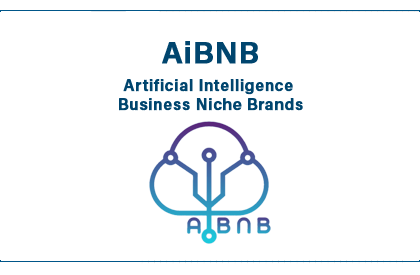In today’s competitive market, staying ahead requires innovative strategies. Advanced tools powered by machine learning and natural language processing are transforming how businesses operate. These technologies enhance the shopping experience by personalizing interactions and automating key functions.
Understanding customer behavior is crucial. By analyzing purchase history and preferences, businesses can make smarter decisions. This approach not only improves the customer experience but also drives sales growth.
This guide explores seven essential tools that can elevate your business. From optimizing marketing messages to managing inventory, these solutions offer practical benefits. We’ll also touch on applications beyond traditional e-commerce, such as property management and real estate.
With insights from industry leaders like Amazon and McKinsey, this article provides actionable advice. Whether you’re looking to enhance customer engagement or streamline operations, these tools can help. Let’s dive into the strategies that can transform your business.
The Evolution of AI in E-commerce
The journey of technology in retail has reshaped how businesses connect with consumers. From basic data collection to advanced algorithms, the retail landscape has transformed significantly. This evolution has enabled companies to make smarter decisions and deliver personalized experiences.
Historical Milestones and Industry Shifts
In the early days, retailers relied on simple methods to gather consumer information. Over time, advancements in data mining and machine learning revolutionized the process. Companies like Amazon pioneered the use of algorithms for product recommendations and inventory management.
These innovations paved the way for real-time analytics and personalized marketing. Retailers began leveraging vast datum to predict consumer behavior and optimize operations. This shift marked a turning point in how businesses approached online sales.
Impact on Online Retail Trends
Consumer expectations have evolved alongside technological advancements. Today, shoppers demand seamless experiences, from product discovery to checkout. Retailers have responded by integrating tools that enhance personalization and efficiency.
Beyond traditional retail, technologies like AI real estate tools are extending these benefits to other industries. These tools analyze market trends and consumer preferences, offering insights that drive smarter business decisions. This broader digital transformation highlights the versatility of these innovations.
How “AI for E-commerce” Transforms Your Business
Modern businesses are leveraging cutting-edge technology to stay competitive. By integrating advanced tools, companies can streamline operations and enhance customer experiences. This strategic shift is reshaping how businesses approach core functions like marketing, inventory management, and customer engagement.

Strategic Roadmap for Implementation
Start by identifying areas where technology can add value. Focus on customer data analysis to create personalized recommendations. This approach not only improves shopping experiences but also drives sales growth.
Next, invest in machine learning tools to automate routine tasks. These solutions can optimize inventory, reduce costs, and improve efficiency. For example, Amazon’s recommendation engine has significantly boosted its revenue by tailoring product suggestions to individual preferences.
Finally, align your technological investments with overall business goals. Whether you’re in digital retail or property management, these strategies can be adapted to meet your specific needs. By following this roadmap, you can unlock the full potential of advanced tools and stay ahead in today’s competitive market.
Boosting Sales with Top AI Tools
Harnessing the power of advanced tools can significantly elevate your sales strategy. From personalized recommendations to automated customer service, these solutions are transforming how businesses operate. Let’s explore some of the most effective tools and their real-world impact.
Overview of Effective AI Tools
One of the most impactful tools is the recommendation engine. Powered by advanced algorithms, it analyzes customer behavior to suggest relevant items. This approach has been a game-changer for platforms like Amazon, driving significant revenue growth.
Another essential tool is the chatbot. Using natural language processing, it handles routine inquiries, freeing up human agents for complex tasks. Companies report up to an 80% reduction in customer service workload with this solution.
Dynamic pricing tools are also gaining traction. By adjusting prices based on demand and competition, businesses can boost profit margins by up to 25%. These tools rely on machine learning to make real-time decisions.
Real-World Success Stories
Retail giant Walmart saw a 30% increase in conversion rates after implementing visual search technology. Customers could find products faster, leading to higher sales. This tool uses image recognition algorithms to match user searches with inventory.
Small businesses are also benefiting. A boutique clothing store used personalized email campaigns powered by machine learning. Their open rates soared by 20%, translating to higher engagement and sales.
Beyond retail, property management firms are adopting similar tools. By analyzing market trends and consumer preferences, they’re making smarter decisions. This highlights the versatility of these technologies across industries.
To learn more about the future of AI in eCommerce, check out this detailed analysis.
Enhancing Customer Experience Through Personalization
Personalization is no longer a luxury but a necessity in today’s digital-first world. Customers expect tailored experiences that cater to their unique preferences. By leveraging advanced tools, businesses can create meaningful interactions that drive satisfaction and loyalty.

Leveraging AI-driven Recommendations
AI-driven recommendations are transforming how customers interact with your platform. By analyzing purchase history and browsing behavior, these tools suggest products that align with individual preferences. For example, platforms like Amazon have seen significant revenue growth by offering personalized product suggestions.
Dynamic pricing also plays a crucial role in personalization. Adjusting prices based on demand and competition ensures customers feel they’re getting the best deal. This strategy not only boosts sales but also enhances the overall shopping experience.
Improving Smart Searches and Chatbot Support
Smart search functionalities make it easier for customers to find what they’re looking for. By understanding natural language queries, these tools deliver accurate results in seconds. This reduces frustration and increases the likelihood of a purchase.
Chatbots powered by natural language processing provide 24/7 support, handling routine inquiries efficiently. This frees up human agents to focus on complex issues, ensuring a seamless customer experience. For instance, companies report up to an 80% reduction in customer service workload with this solution.
Personalization isn’t limited to ecommerce. Property management firms are adopting similar tools to analyze market trends and consumer preferences. This approach helps them make smarter decisions and deliver tailored services. To learn more about how these technologies are shaping retail, check out this detailed analysis.
Streamlining Business Operations with Automation
Automation is reshaping how businesses handle daily operations, making processes faster and more efficient. By using advanced tools, you can reduce manual effort and focus on strategic tasks. This approach not only saves time but also minimizes errors, ensuring smoother workflows.
Optimizing Inventory and Logistics
One of the most impactful ways to use automation is in inventory management. Tools powered by machine learning analyze large datasets to predict stock levels accurately. This reduces shortages and excess inventory, saving costs and improving efficiency.
Logistics also benefit from automation. By optimizing delivery routes and tracking shipments in real-time, businesses can reduce fuel costs and improve delivery times. Companies like Walmart have seen significant improvements in their supply chain operations by adopting these tools.
Chatbots and virtual assistants are another way to streamline operations. They handle routine inquiries, freeing up your team for more complex tasks. This not only enhances customer service but also reduces workload by up to 80%.
Automation isn’t limited to retail. Property management firms are using similar tools to analyze market trends and optimize operations. This cross-industry application highlights the versatility of these technologies.
To integrate automation into your business, start by identifying repetitive tasks. Invest in tools that align with your goals, and train your team to use them effectively. This way, you can unlock the full potential of automation and stay competitive in today’s market.
Integrating AI Real Estate Tools and Property Management AI
The real estate industry is undergoing a digital transformation, driven by advanced tools. These innovations are not just limited to retail but are now making waves in property management. By adopting these solutions, you can streamline operations, enhance decision-making, and unlock new levels of efficiency.
Expanding AI Applications Beyond Traditional E-commerce
Advanced tools are no longer confined to retail. In real estate, they optimize property listings, pricing strategies, and management practices. For example, machine learning algorithms analyze market trends to suggest competitive pricing. This ensures your listings attract the right buyers or tenants.
These tools also save time by automating routine tasks like tenant screening and lease management. By reducing manual effort, you can focus on strategic decisions that add value to your business. The crossover benefits from retail applications are evident, making these tools versatile across industries.
Benefits of Adopting These High-Value Tools
Adopting advanced tools in real estate offers significant advantages. For instance, businesses report a 7.3% rise in productivity and a 5.6% improvement in operational effectiveness. These tools also enhance customer interaction, leading to better engagement and satisfaction.
Cost savings are another major benefit. Smart contracts and blockchain technology reduce transaction costs by 3%. Additionally, property management systems like IoSync boost efficiency by 5.5%. These improvements translate to higher revenue and a stronger competitive edge.
By exploring these tools, you can extend your business reach into new sectors. Whether you’re managing properties or analyzing market trends, these solutions offer practical value. Start integrating them today to stay ahead in an evolving industry.
The Future of AI and Emerging Trends
The future of technology is shaping industries in unprecedented ways. From retail to real estate, advancements are redefining how businesses operate. Staying ahead requires understanding these trends and adapting to the evolving landscape.
Market Growth Projections and Technology Innovations
The market for advanced tools is expected to reach $45.72 billion by 2032. This growth is driven by increasing demand for personalized experiences and efficient operations. Innovations in natural language processing and real-time analytics are leading the charge.
Retailers delivering tailored experiences can see a 40% increase in revenue. Tools that optimize marketing strategies are also gaining traction. These advancements are not limited to retail; they’re transforming property management and other sectors.
Adapting to an Evolving Competitive Landscape
The competitive landscape is shifting rapidly. Businesses that embrace technology are gaining a significant edge. For example, 84% of companies prioritize these tools as their top strategy.
To stay competitive, focus on integrating solutions that enhance customer engagement and streamline operations. Real-time analytics and language processing tools can help you respond to shifting consumer demand effectively.
Preparing Your Business for Tomorrow’s Opportunities
Preparing for the future starts with investing in the right tools. Look for solutions that improve marketing efficiency and boost revenue. For instance, AI-powered chatbots handle 70% of customer conversations, freeing up resources for strategic tasks.
In property management, these tools analyze market trends to optimize pricing and operations. By adopting these innovations, you can unlock new opportunities and stay ahead in an ever-changing market.
Conclusion
The digital landscape is evolving rapidly, offering new opportunities for growth. By integrating advanced tools, you can transform your operations and enhance customer experiences. From personalized recommendations to streamlined logistics, these solutions drive measurable improvements like higher conversion rates and operational efficiency.
Real-world examples highlight the impact of these tools. Businesses report significant gains in revenue and engagement by analyzing user behavior and purchase history. As technology advances, the future holds even more potential for tailored marketing and automation.
To stay ahead, explore innovative tools that align with your goals. Visit aibnb.com to discover how these strategies can elevate your business. Embrace the future of online shopping and property management by continually updating your approach as technology evolves.
FAQ
How does machine learning improve the shopping experience?
Machine learning analyzes customer behavior and purchase history to offer personalized recommendations, enhancing satisfaction and boosting sales.
What role does natural language processing play in online shopping?
Natural language processing powers chatbots and smart search tools, making it easier for consumers to find products and get quick support.
Can dynamic pricing increase revenue for retailers?
Yes, dynamic pricing adjusts product costs based on demand and competition, helping businesses maximize profits while staying competitive.
How can AI tools streamline inventory management?
These tools predict demand, optimize stock levels, and reduce waste, ensuring smoother operations and better resource allocation.
What are the benefits of AI-driven product recommendations?
Personalized suggestions increase engagement, improve conversion rates, and encourage repeat purchases by showing items tailored to consumer preferences.
How does AI enhance marketing strategies for e-commerce platforms?
It analyzes user data to create targeted campaigns, optimize ad spend, and deliver content that resonates with specific audiences.
What future trends should businesses prepare for in AI and e-commerce?
Expect advancements in predictive analytics, voice commerce, and augmented reality, which will redefine the shopping experience and create new opportunities.
Source Links
- 10 Best AI Tools for Ecommerce To Boost Sales in [wcyear]
- 10 Best AI Tools for Ecommerce Businesses (2025) – Shopify
- AI In Ecommerce: 7+ Best AI Tools for Ecommerce Businesses
- The trends driving the evolution of e-commerce and AI
- The Evolution of AI in E-Commerce | XENA Intelligence
- Council Post: How AI Is Revolutionizing E-Commerce
- AI for E-commerce and Customer Experience
- AI for e-commerce: Use cases, applications, solution, implementation and development
- Best 10 AI Tools to Automate Ecommerce Growth
- Council Post: 12 Ways E-Commerce Companies Can Boost D2C Sales With AI
- 5 ways AI can drive eCommerce sales higher | OuterBox
- How AI Improves Customer Experience Personalization | Monetate
- Using AI for Product Personalization: How AI Enhances Your Customer Experience
- Harnessing the Power of AI Automation for Streamlined Business Operations | NICE
- Streamlining Business Operations with AI-Powered Automation | SennaLabs
- AI and Automation in E-commerce: A Complete Guide
- Top 10 AI Solutions for Real Estate Industry in 2024
- How to Use AI for Real Estate in 2025: Top Use Cases
- AI for Ecommerce: How It’s Transforming the Future
- How Ecommerce AI is Transforming Business in 2025
- AI in E-commerce: Artificial Intelligence Trends Shaping the Future of Retail in 2025 | DigitalOcean
- How Artificial Intelligence in eCommerce Works
- Importance of Artificial Intelligence in E-commerce – Xpheno




